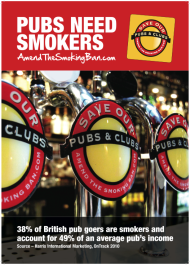Badger cull - politics or health?
 Wednesday, October 24, 2007
Wednesday, October 24, 2007  It was reported this week that Britain's chief scientist has called for large numbers of badgers to be culled to stop the spread of tuberculosis among cattle. I don't think the word 'epidemic' has been used (yet) but according to Sir David King, who will today give evidence to the Environment, Food and Rural Affairs select committee, "now was the time for action".
It was reported this week that Britain's chief scientist has called for large numbers of badgers to be culled to stop the spread of tuberculosis among cattle. I don't think the word 'epidemic' has been used (yet) but according to Sir David King, who will today give evidence to the Environment, Food and Rural Affairs select committee, "now was the time for action".
Various parties have lined up on either side of what could become a pretty bloody battle (literally). Wildlife supporters are up in arms, while farming leaders support the cull. As one who is now automatically suspicious of the many fanciful claims made by scientific and medical "experts", I'm firmly on the side of the badgers.
The Daily Mail reported that:
Critics of culling, including the RSPCA, accused Sir David of advocating 'senseless slaughter' and relying on political rather than scientific arguments.
Professor John Bourne, who wrote the report of the Independent Scientific Group on Cattle TB, said Sir David's advice was not consistent with current science. He said such a policy was more in line "with the political need to do something" about the problem.
The RSPCA said a cull would mean "senseless slaughter, enormous suffering and would be scientifically bankrupt". Rob Atkinson, the charity's head of wildlife science, said: "This latest report seems to be less about science, and more about caving in to pressure to do something even if that something is the worst possible option.
I am further persuaded, not only by my own healthy scepticism (born of experience), but by comments attributed to Meurig Raymond, deputy president of the National Farmers' Union, who said: "Now that we have scientific endorsement for the principle of badger culling, there can be no further excuse for the Government not to act."
"Scientific endorsement ... no further excuse for the Government not to act." Now, where have I heard that before?
 Simon Clark |
Simon Clark |  1 Comment |
1 Comment | 






















